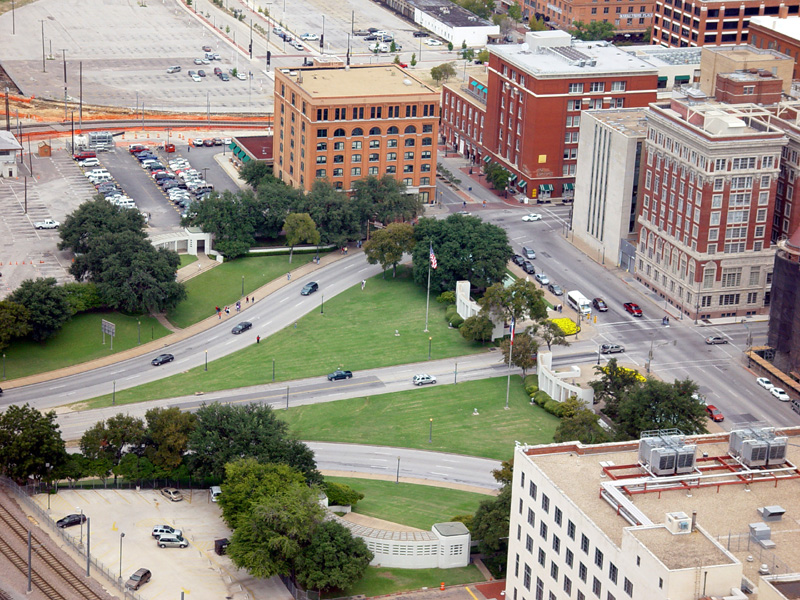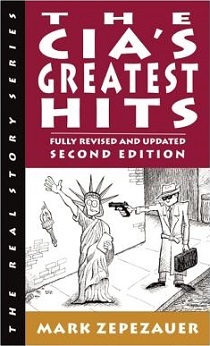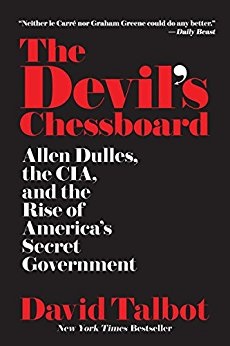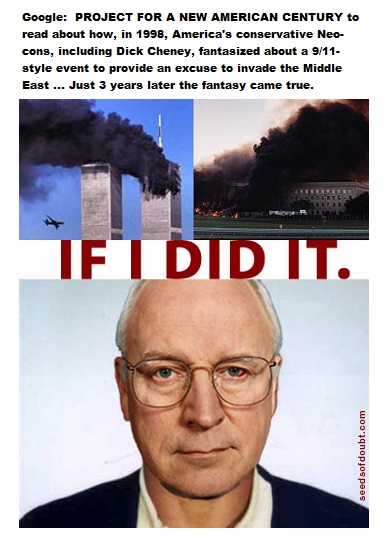|
The Intimidation of Dealey Plaza Witnesses
"It is dangerous to be right in matters on which the established authorities are wrong." --Voltaire, French philosopher and writer (1694 - 1778) The following text is
excerpted from the book, Crossfire by Jim Marrs: Richard Carr, a
steelworker who saw a heavyset man on the sixth-floor of the [Texas
School Book] Depository minutes before the shooting [of President
Kennedy], saw two men run from either inside or from behind the Texas
School Book Depository minutes after the assassination. He claimed the men got
into a Nash Rambler station wagon facing north on the west side of
Houston Street by the east side of the Depository. He said the
wagon left in such a hurry one of its doors was still open. He
last saw the station wagon speeding north on Houston. After reaching ground
level from the seventh-story vantage point on the courthouse under
construction, Carr said he saw the same man he had seen earlier in the
Depository window. Carr said the man was "in an extreme hurry
and kept looking over his shoulder" as he walked hurriedly eastward on
Commerce Street. Carr's story was
corroborated by that of James R. Worrell, Jr., who told the Warren
Commission that seconds after the shooting, he saw a man wearing a
sportcoat come out of the rear of the Depository and walk briskly south
on Houston (the direction of Carr's location). Worrell can't be
questioned further about what he saw, as he was killed in a motorcycle
accident on November 9, 1966 at age twenty-three. Carr, however, told
researchers about his treatment at the hands of the authorities.
In a taped interview, Carr said: Not long after this
encounter with the FBI, Carr's home was raided by more than a dozen
Dallas policemen and detectives armed with a search warrant.
Claiming they were looking for "stolen articles," they
ransacked Carr's home while holding him and his wife a gunpoint.
Carr and his wife were taken to jail but later released. The day
after the police raid, Carr received an anonymous phone call advising
him to "get out of Texas." Carr finally moved to
Montana to avoid harassment, but there he found dynamite in his car on
one occasion and was shot at on another. After testifying in the
New Orleans Clay Shaw trial, Carr was attacked by two men in
Atlanta. Although stabbed in the back and left arm, Carr managed
to fatally shoot one of his assailants. After turning himself in,
Carr was not indicted by an Atlanta grand jury. Other witnesses also were
later intimidated. Acquilla Clemmons, who saw two men at the scene
of the Tippit slaying, said a man with a gun came to her home and told
her to keep quiet. Ed Hoffman, who saw two men with a rifle behind
the picket fence on the Grassy Knoll at the time of the assassination,
was warned by an FBI agent not to tell what he saw "or you might
get killed." A relative of Depository
superintendent Roy Truly recently told researchers that due to
intimidation by federal authorities, Truly was fearful until his
death. Truly's wife, Mildred, still refuses to discuss the
assassination--even with family members. Sandy Speaker, the
supervisor of Warren Commission star witness Howard Brennan, would not
discuss the assassination until recently, after getting a phone call
from his friend and co-worker A. J. Millican. Speaker said he got
a call from Millican early in 1964. Millican was almost in tears
and told him never to talk about the assassination. Millican said he
had just received an anonymous call threatening not only his life, but
the lives of his wife and her sister. He said the caller told him
to warn Speaker to keep his mouth shut. Recently Speaker told this
author: Whispered rumors, anonymous
phone calls, and freakish "accidents" combined to create a
tangible aura of fear in Dallas in the weeks following the
assassination. Some of that fear still lingers there. Links:
"We are not afraid to entrust the American people with unpleasant facts, foreign ideas, alien philosophies, and competitive values. For a nation that is afraid to let its people judge the truth and falsehood in an open market is a nation that is afraid of its people." --John F. Kennedy "Some staff members and commissioners of the Sept. 11 panel concluded that the Pentagon's initial story of how it reacted to the 2001 terrorist attacks may have been part of a deliberate effort to mislead the commission and the public rather than a reflection of the fog of events on that day, according to sources involved in the debate. Suspicion of wrongdoing ran so deep that the 10-member commission, in a secret meeting at the end of its tenure in summer 2004, debated referring the matter to the Justice Department for criminal investigation, according to several commission sources. Staff members and some commissioners thought that e-mails and other evidence provided enough probable cause to believe that military and aviation officials violated the law by making false statements to Congress and to the commission." --Washington Post, 2 August 2006 "At some level of the government, at some point in time ... there was an agreement not to tell the truth about what happened [on 9/11]." --John Farmer, Senior Counsel to the 9/11 Commission and Attorney General of New Jersey "I want to overthrow Saddam [Hussein]. Find me a way to do it." —President George W. Bush, speaking in the first National Security Council meeting of the Bush presidency on 30 January 2001, eight months before the World Trade Center attacks of 9/11, as told by Treasury Secretary Paul O'Neill, TV documentary, "Why We Did It" "They had a plan to go to war [with Iraq], and when 9/11 happened that's what they did; they went to war." —Senator Max Cleland, interview with Salon magazine, 21 November 2003 "As each day goes by, we learn that this government knew a whole lot more about these terrorists before Sept. 11 than it has ever admitted." —Senator Max Cleland,The New York Times, 26 October 2003 "If I had to narrow it down to one person ... I think my prime suspect [in the 9/11 attacks] would be Dick Cheney." --Dr. Robert Bowman, Ph.D. in Aeronautics and Nuclear Engineering from Caltech, former U.S. Air Force Lieutenant Colonel, and Director of Advanced Space Programs Development for the U.S. Air Force in the Ford and Carter administrations "I asked [Senator Paul Wellstone] how his week had been. He said, 'it's been tough. Vice President Cheney called me in and told me to get on their bandwagon or there would be serious ramifications in Minnesota. 'And stop sticking your nose into 9/11; there are some rumors going around, but we are going to get to the bottom of this.' When Paul made this statement, there were about 10 military veterans standing around us, and he spoke to them about 9/11... 'There are so many things going on about 9/11 that just don’t make sense...' Wellstone knew 9/11 was staged. Wellstone was after 9/11." —Pat O’Reilly, Wellstone’s close friend, interviewed in the documentary, "Wellstone: They Killed Him" Dick Cheney Confronted on His Stand-Down Order on 9/11 Crossing the Rubicon — Simplifying the Case Against Dick Cheney Cheney's Proposal to Dress Up Navy Seals as Iranians and Shoot at Them
"Amazing, incredible, pick your word. For the third time today, it’s reminiscent of those pictures we’ve all seen too much on television before, where a building was deliberately destroyed by well placed dynamite to knock it down." —CBS News anchor Dan Rather, commenting on the collapse of Building 7 - September 11, 2001 at approximately 5:30pm EST "I will begin by stating what we know to be a solid, incontrovertible, scientific fact. We know that it is strictly impossible for any building, much less steel columned buildings, to 'pancake' at free fall speed. Therefore, it is an incontrovertible fact that the official explanation of the collapse of the WTC buildings is false." --Paul C. Roberts, Assistant Secretary of the U.S. Treasury under President Ronald Reagan "In the summer of 2000, the Project for the New American Century (PNAC), a neo-conservative think tank riddled with soon to be Bush administration officials and advisors, issued a document calling for the radical restructuring of U.S. government and military policies. It advocated the massive expansion of defense spending, the re-invasion of Iraq, the military and economic securing of Afghanistan and Central Asia, increased centralized power and funds for the CIA, FBI, and NSA, among a slew of other policies that would, in the near future, be enacted upon their ascension to power. In the same document, they cite a potential problem with their plan. Referring to the goals of transforming the U.S. and global power structure, the paper states that because of the American public's slant toward ideas of democracy and freedom, 'this process of transformation is likely to be a long one, absent some catastrophic and catalyzing event - like a new Pearl Harbor.'" —http://www.911hardfacts.com 9/11 - Anatomy of a Great Deception "Real patriots ask questions." --Carl Sagan "Unthinking respect for authority is the greatest enemy of truth." --Albert Einstein |



